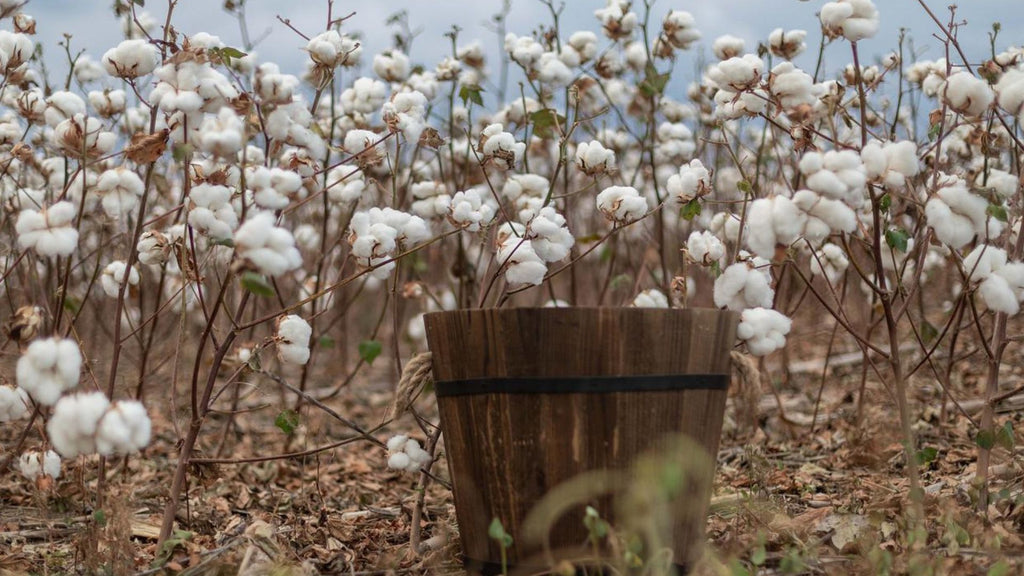Even though all materials comes with a cost, organic is more important than you think.
When we choose our clothes, we need to make conscious decisions about the materials that are used. It definitely makes a huge difference.
And we want to tell you why:
Conventional cotton has “earned” the title of being the dirtiest crop on earth: it consumes 16% of the world's insecticides and requires $2 Billion in pesticides each year. Those pesticides and insecticides used, contaminate the soil we use to grow crops, the air we breathe and the water we drink. The deaths of animals exposed to these contaminants is counted in the millions every year.
A disaster for the planet and ourselves!
Global consumption of non-organic cotton also releases around 220 million tonnes of greenhouse gas into our atmosphere, about 220 million tonnes a year.
The damage caused to us and the environment by growing non-organic cotton is enormous.

Are you still not sure about it?
The WWF says that it takes 2,700 litres of water to produce the cotton needed to make just one t-shirt.
However, if you produce cotton without fertilisers and pesticides, the Soil Association claims the same garment would use 243 litres to produce in comparison.
It sounds a lot, but organic cotton has its benefits: it’s durable, long-lasting, non-allergenic and sturdy; meaning less waste, a longer life span and it’s natural.
Now let´s talk about organic cotton. It is grown without harmful chemicals, leaving the soil, air and water free from contaminates that cause harm. It produces around 46% less CO2e compared to conventional cotton and as we said above, uses far less water to grow.

On top of all that, organic cotton growers use beneficial insects to control unwanted pests instead of relying on harmful chemicals, thus encouraging biodiversity. It's a win-win for humanity and the earth.
At Mayamiko, we are committed to keep challenging ourselves to do better: this is why we have chosen to use GOTS certified organic cotton wherever possible.
As the organic certification is not available in many of the communities we work in, we found Cotonea, who works with farmers in Gulu, Northern Uganda to produce the ethical organic, rain-fed cotton that makes our beautiful plain fabrics.
In the northwest of Uganda on fields which have lain vacant for decades due to the war, this industry is starting to rebuild on the fertile land, providing fairly paid jobs for many disadvantaged farmers, and quality materials.
As you can see, your purchasing power is important, it can make a huge difference to the planet and to us.

(Photos from Pixabay: free download)


